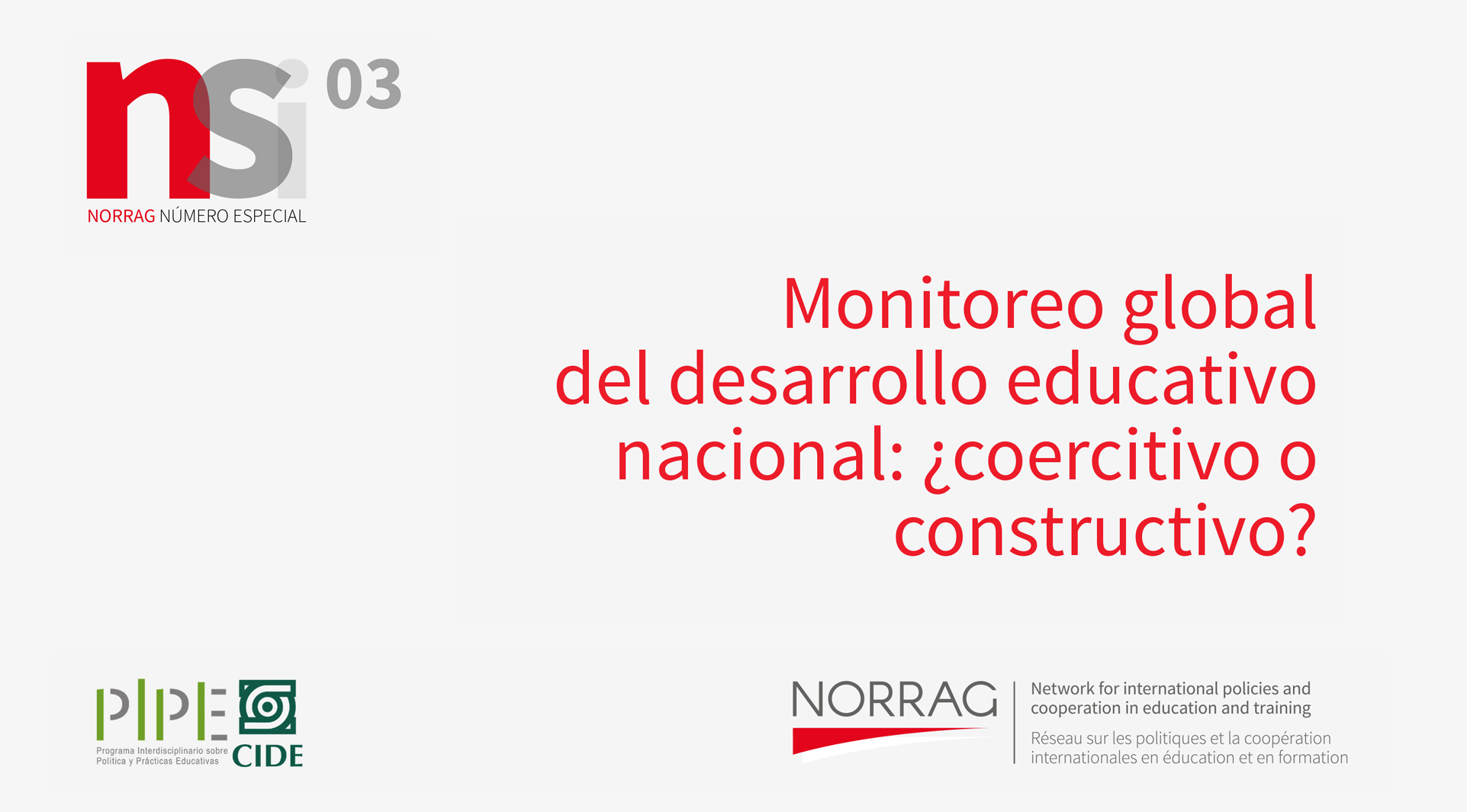NSI 03: Global Monitoring of National Educational Development: Coercive or Constructive?
The third edition of NORRAG Special Issue (NSI), released on 3 October 2019, is entitled “Global Monitoring of National Educational Development: Coercive or Constructive?”. NSI 03 aims to analyze the impact of global monitoring reports on education and educational policy around the world. The English translation was released in March 2020.
For the first time, the original version is in Spanish and titled “Monitoreo global del desarrollo educativo nacional: ¿coercitivo o constructivo?”. English, French, Arabic, Russian and Mandarin Chinese translations are now available.
NSI 03 consists of 23 articles and provides valuable insights and perspectives about the way education reports are perceived, announced and received, but also how the reports are produced by international organizations. The issue offers a panel of reflections on how global reports and indicators shape the global development agenda. Bridging the gap between theory and practice as well as advocacy and policy.
Authors were invited to assess the reception and impact of these reports on global governance, agency and thematic focus. The issue seeks to question the possible disruptive effect of global reports and international standardized tests on national policies, and the practicability of developing global recommendations in a world of diversity. It also seeks to show how national policy actors, members of civil society and national researchers make use of these reports.
The issue is composed of four sections that speak directly to policymakers, scholars, practitioners, civil society organizations, and stakeholders. Each section focuses on a specific theme related to global monitoring of national educational development:
- Part one introduces the main objectives of global monitoring reports and put them into perspective. While it demonstrates how data have an impact on national educational policy, it also highlights how the conception and funding of these reports may disregard parts of the population who are already experimenting forms of marginalization
- Part two proposes a set of analyses on how to improve monitoring reports. This section seeks to explore how monitoring reports can be best articulated in relation to local needs and priorities, notably access and quality.
- Part three investigates communication and dissemination approaches of results. Introducing three case studies, this short section offers reflections about the legitimacy of such tools and the role of media in the national reception of international monitoring reports.
- Part four delves into the impact of global reports on education policies, exploring a selection of case studies from Chile, Mexico, South Africa, Sweden, as well as regional overviews from the Middle East and North Africa.
NSI 03 is edited by Marisol Vázquez Cuevas, executive director of the Maison Universitaire Franco-Mexicaine (MUFRAMEX), in France, current affiliated professor and former executive director, research coordinator and associate professor at the Interdisciplinary Program on Education Policy and Practices, Centro de Investigación y Docencia Económicas (CIDE), in Mexico.
Watch a video presentation of NSI 03, featuring guest editor Marisol Vázquez Cuevas:
The following videos are presented by Marisol Vázquez Cuevas, editor of NSI 03, and provide opinions of the authors of NSI 03 and invited guests on global monitoring of national educational development.
Javier Rojas, PIPE-CIDE, México: Contribution to NSI 03, Global Monitoring of National Educational Development: Coercive or Constructive? (Spanish)
Simon Janashia, Researcher: Global Monitoring of National Educational Development: Coercive or Constructive?
Claudia Costin, Director Center for Excellence and Innovation in Education Policies: Global Monitoring of National Educational Development: Coercive or Constructive?
Lucrecia Santibañez, Associate Professor, Claremont Graduate University: Global Monitoring of National Educational Development: Coercive or Constructive? (Spanish)
Andreas Schleicher, Director for Education and Skills OECD: Global Monitoring of National Educational Development: Coercive or Constructive?


